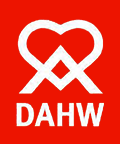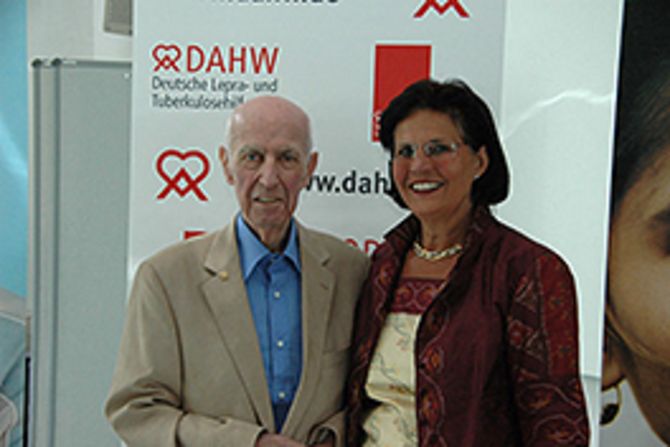Over the past year DAHW (German Leprosy and Tuberculosis Relief Association) has made a remarkable contribution to providing access to diagnosis, treatment and rehabilitation for thousands of people. Persons suffering from leprosy, tuberculosis, Buruli ulcer and other stigmatising diseases have been able to place their trust in DAHW’s support.
Leprosy is still a health problem in many countries and we will not “see the end of it” for quite a long time. This is indicated by the high number of patients who are already disabled when they are diagnosed for the first time, as also by the high rate of children among the newly detected cases (sometimes more than 10 percent).
Making these facts known to the public and raising the funds for the necessary support activities were major tasks in the year 2009, too. Moreover, DAHW has intensified its efforts to fight the ever present stigma. This can be achieved, for example, by supporting people with disabilities due to leprosy together with people with disabilities due to other causes. Support is given in a familiar environment by including the family, neighbours and the community.
DAHW has been doing a good job at fighting tuberculosis, too. The cure rate has increased and the death rate was reduced successfully. But co-infections of TB and HIV and the increase of TB infections that are resistant to the standard drugs remain a great challenge for health services.
In India, Pakistan and Sierra Leone, three of the twenty most affected countries, DAHW is supporting programmes to fight multi-drug resistant tuberculosis. The special therapy needed here is very difficult and very expensive.
DAHW has been supporting four research projects that are aiming to develop a vaccine, to assist in early diagnosis and to find appropriate chemoprophylaxis for leprosy. These projects are to continue in 2010 and will contribute to clarifying the way in which leprosy is transmitted and to improved methods of early detection of the disease.
In 2009 the number of donors increased, strongly influenced by the 80th birthday of Dr. Ruth Pfau in September.
In 2009 DAHW markedly reduced the amount which had to be withdrawn from savings. This was only possible by reducing our support to some projects and programmes in close consultation with our country offices. The Honorary Board is aware that this was not an easy demand and expresses its thanks to all the people who developed and realised this austerity policy responsibly.
At the elections of the Honorary Board in 2009, Prof. Dr. Klaus Fleischer did not run for a re-election another time having served on the Board for 19 years. The Honorary Board expresses its thanks for his advice and commitment. Monika Huesmann (Olpe), Jochen Schroeren (Viersen) and Dirk Weicke (Berlin) are newly elected members of the Board.
Special thanks of the Honorary Board are addressed to Alois Pöschmann who, after almost four decades, has retired from active work for DAHW. He has left his imprint as Treasurer and President of DAHW and for many people he is the face of the association. For this reason the Meeting of Members elected Alois Pöschmann Honorary President.
In 2009 the Honorary Board met for four regular meetings. All meetings were prepared by the Chief Executive Officer and personnel of DAHW by means of evaluations and reports.
On behalf of the Honorary Board, I thank all the members of the association and all people who have contributed to good results in 2009. We extend special thanks to the donors and the numerous volunteers for their great commitment and their often decades-long dedication. We also thank our employees in Würzburg and Münster as well as in partner countries for their professional work.
Gudrun Freifrau von Wiedersperg
President



